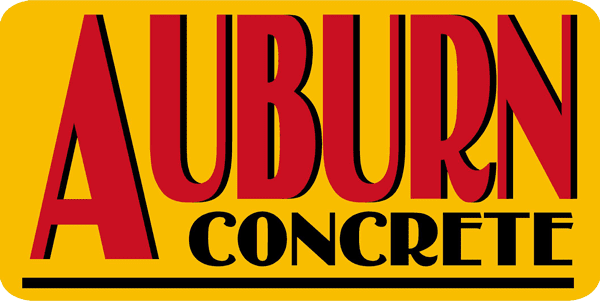In the ever-evolving landscape of residential construction, concrete remains a staple due to its durability, versatility, and cost-effectiveness. As homeowners seek to customize their living spaces, high-quality residential concrete solutions have become essential for modern homes. This comprehensive guide will explore how these solutions not only enhance the aesthetic appeal of homes but also ensure long-term structural integrity.
Understanding High-Quality Residential Concrete Solutions
High-quality residential concrete solutions encompass a range of applications tailored to meet the specific needs of homes. This includes foundations, driveways, patios, sidewalks, and decorative elements that require a blend of functional and aesthetic qualities. The right concrete mix and application technique are critical to achieving the best results, emphasizing the importance of expertise and high standards in materials.
Benefits of High-Quality Concrete in Home Construction
- Durability and Strength: Concrete’s inherent strength makes it ideal for supporting the structural load of a home, resisting weather-related wear and tear, and withstanding daily use without significant damage.
- Energy Efficiency: Concrete’s thermal mass helps in moderating indoor temperatures, reducing the need for heating and cooling and thereby lowering energy costs.
- Low Maintenance: Unlike other building materials that might degrade or require frequent upkeep, concrete surfaces are easy to clean and maintain, needing only occasional sealing or cleaning to look their best.
- Design Versatility: With advancements in mixing and setting techniques, concrete can be customized in various colors, finishes, and textures to match any home style.
Key Applications of High-Quality Concrete in Residential Settings
- Foundations: The backbone of any home, a high-quality concrete foundation ensures stability and durability, protecting against soil movement and moisture infiltration.
- Driveways and Walkways: These areas benefit greatly from concrete’s robustness, providing a durable surface that can bear heavy loads and frequent traffic.
- Patios and Outdoor Living Spaces: Concrete is often chosen for patios due to its versatility. It can be stamped, stained, or molded to fit various design aesthetics, making it a popular choice for outdoor entertainment areas.
- Decorative Features: Concrete’s adaptability allows for innovative uses such as fire pits, water features, and garden paths, enhancing the landscape without sacrificing quality.
Installation and Maintenance: Best Practices
To ensure the longevity and performance of concrete installations, proper practices must be followed:
- Proper Mixing and Curing: Using the right mix and allowing concrete to cure slowly will ensure maximum strength and durability.
- Sealing and Waterproofing: These treatments help protect concrete from moisture penetration, freeze-thaw cycles, and stains, extending its life and maintaining its appearance.
- Regular Cleaning: Simple routines such as sweeping and occasional washing can prevent buildup of dirt and grime, keeping concrete areas looking new.
Choosing the Right Concrete Contractor
Selecting a skilled contractor is crucial. They should have a solid track record, excellent references, and the ability to provide customized solutions. A good contractor will not only offer quality craftsmanship but also guide homeowners through the selection process of materials and designs that best fit their needs.
Technological Advances in Concrete
The field of residential concrete has seen significant technological advancements:
- Fiber-Reinforced Concrete: This adds extra strength and durability, reducing the risk of cracking.
- High-Performance Mixes: Enhanced with special additives, these mixes provide superior performance in extreme conditions.
- Eco-Friendly Options: Sustainable practices in concrete production, including the use of recycled materials and reduced energy consumption, appeal to environmentally conscious homeowners.
Customization and Personalization
Today, homeowners demand more than just functionality; they want their living spaces to reflect their personal style. This demand has led to innovations such as:
- Colorful Concrete: Through the use of dyes and stains, concrete can complement any home color scheme.
- Textured Finishes: Techniques like stamping or carving allow concrete to mimic other materials like wood, stone, or tile, offering aesthetic flexibility.
Case Studies: Real-Life Examples
Several case studies highlight the transformative impact of high-quality residential concrete solutions:
- A homeowner in a coastal area chose high-performance concrete for their foundation to resist saltwater corrosion.
- Another example includes a custom-designed concrete patio with integrated LED lighting and heating elements, providing year-round outdoor comfort.
Future Trends in Residential Concrete
As technology continues to evolve, the future of residential concrete looks promising with trends leaning towards more automated manufacturing processes and increasingly personalized design options. Innovations such as self-healing concrete and programmable cement could redefine residential construction standards.
High-quality residential concrete solutions offer unmatched durability, efficiency, and design versatility for modern homes. From sturdy foundations to stunning decorative elements, concrete continues to be a key component in building safe, stylish, and sustainable homes. By choosing the right materials, techniques, and experts, homeowners can significantly enhance both the value and appeal of their properties.
Don’t settle for ordinary—choose Auburn Concrete for extraordinary results. Contact us today to discuss your project and see how we can transform your property into a masterpiece of modern design and functionality.

